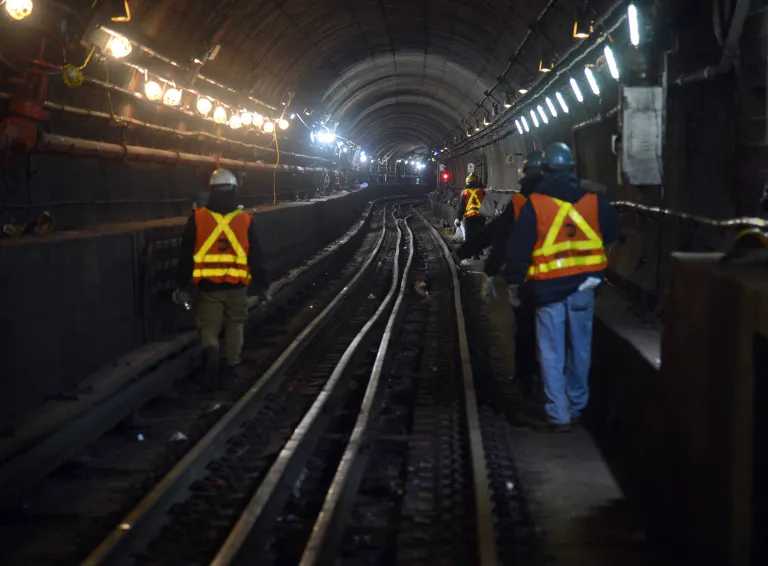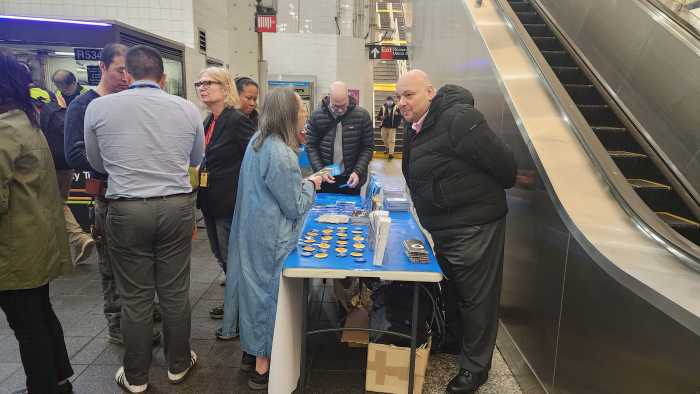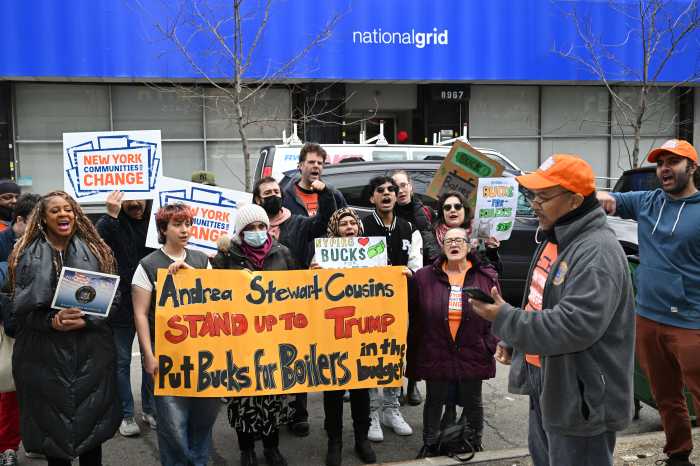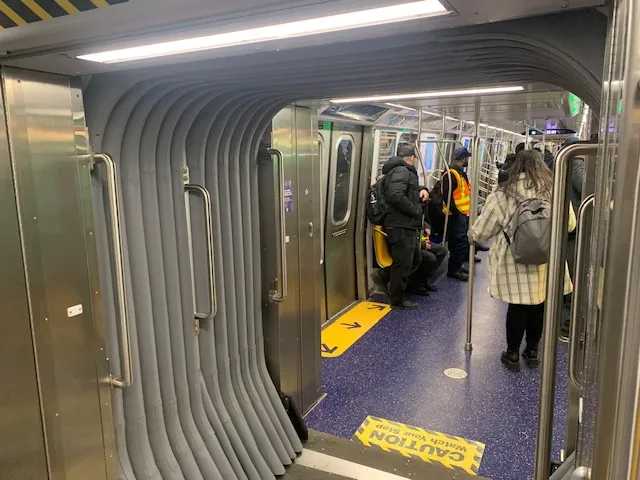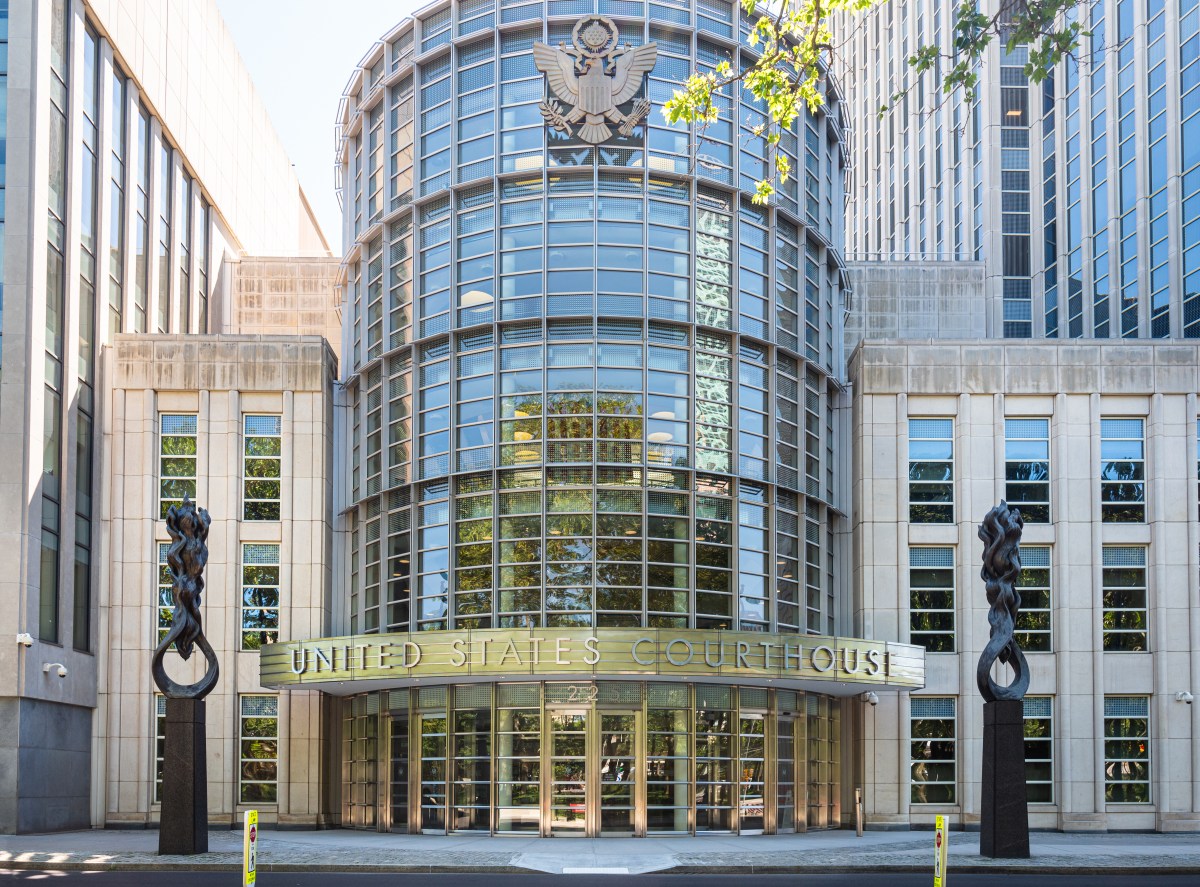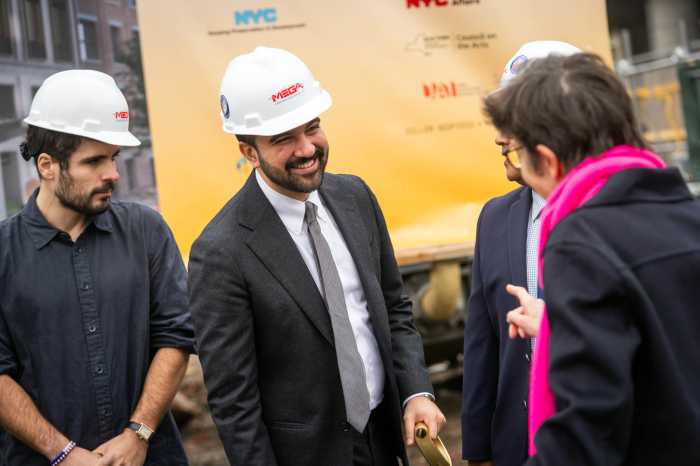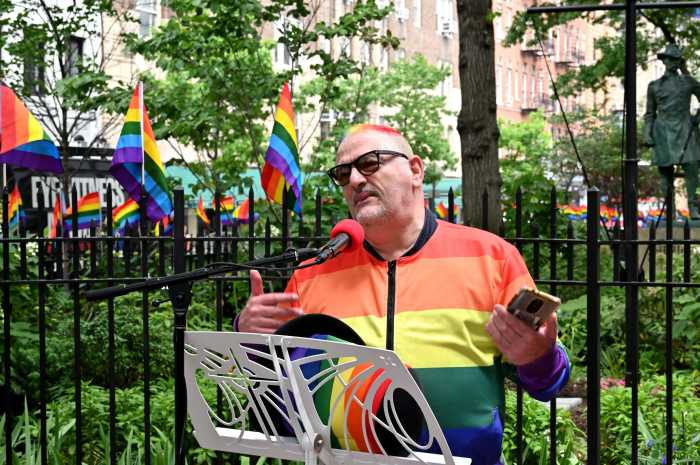NYC Transit President Demetrius Crichlow is confident that the MTA has “done a good job” showcasing the critical importance of its $68.4 billion five-year capital plan, with state officials set to deliver a budget on April 1.
Crichlow, who heads the MTA division response for the subway and bus network, said the 2025-29 plan first outlined last September is the “only way” that the MTA can deliver a system that customers expect.
The MTA had only identified roughly half of the funding sources for the capital plan when they first unveiled the plan last year, leaving a funding shortfall of roughly $33 billion.
That funding shortfall prompted state lawmakers to reject the capital plan before Christmas, with Senate Majority Leader Andrea Stewart-Cousins and Assembly Speaker Carl Heastie citing a lack of identifiable funding streams.
The pair remarked that funding the capital plan may require direct state legislative action in addition to identifying non-state revenue streams. They also outlined that the $33 billion funding gap could be solved during the upcoming State Budget negotiations ahead of the April 1 deadline.
Although it is not uncommon for New York State Budgets to arrive past due, Crichlow believes that the MTA has made a strong case for the $68.4 billion plan ahead of the April 1 due date.
“What I’ve noticed is that no one is saying that we don’t need the work to be done,” Crichlow said Monday evening. “There’s a whole discussion about how we fund the work… but this is a $1.5 trillion asset we’re trying to maintain.
Crichlow added that “90%” of the plan is tied to the state of good repair work that will see the MTA invest in assets that have “been here for a very long time.”
“We need to invest in things like substations and track and signals and cars and our old barns,” he added. “It’s the only way that we can make sure that we can deliver the system that customers actually expect us to.”
Crichlow did not reveal if there is any plan to prioritize certain projects if the state legislature approves a smaller budget for the 2025-29 capital plan, stating that there is “no alternative” to most projects in the plan.
“Since the majority is in a state of good repair, there is no alternative that says… do I replace tracks, or do I replace power,” Crichlow said. “These assets are years old. Some of the substations are 70 or 80 years old. So to say that we’re in a situation where we’re going to choose not to do something that’s not old, it’s just not a tenable place for us as an organization.”
The MTA’s capital plan, which is separate from the agency’s operating budget, proposes introducing a large number of new railcars across the subway and commuter rail systems. It also proposes investments of up to $9 billion in critical structure repairs and almost $8 billion in station environment improvements.
The plan additionally calls for at least 60 new ADA-accessible stations across the subway network and significant investment in signal modernization and fare gates.
Gov. Kathy Hochul committed to funding the capital plan in November but has since joined state lawmakers in penning a letter to President Donald Trump, Transportation Secretary Sean Duffy and other prominent Republicans to call for more federal funding for the project.
Hochul, Stewart-Cousins, and Heastie noted that the MTA carries 43% of the nation’s mass transit riders despite receiving just 17% of the federal transit formula.
“We believe this represents a fundamental misalignment,” the elected officials wrote. “Mass transit must be federally funded at a level commensurate to its importance to our nation and New York must receive its fair share of that funding to keep up with the needs of New Yorkers who rely on it to get to work, school, and medical appointments.”
Hochul previously clashed with Trump over the President’s attempts to nix the $9 congestion pricing toll, a key element of the MTA’s $54.4 billion 2020-24 capital plan. Congestion pricing was earmarked to fund roughly $15 billion – or 27% – of the previous capital plan, with MTA officials acknowledging last September that several projects were put on hold after Hochul initially halted congestion pricing earlier in 2024.

